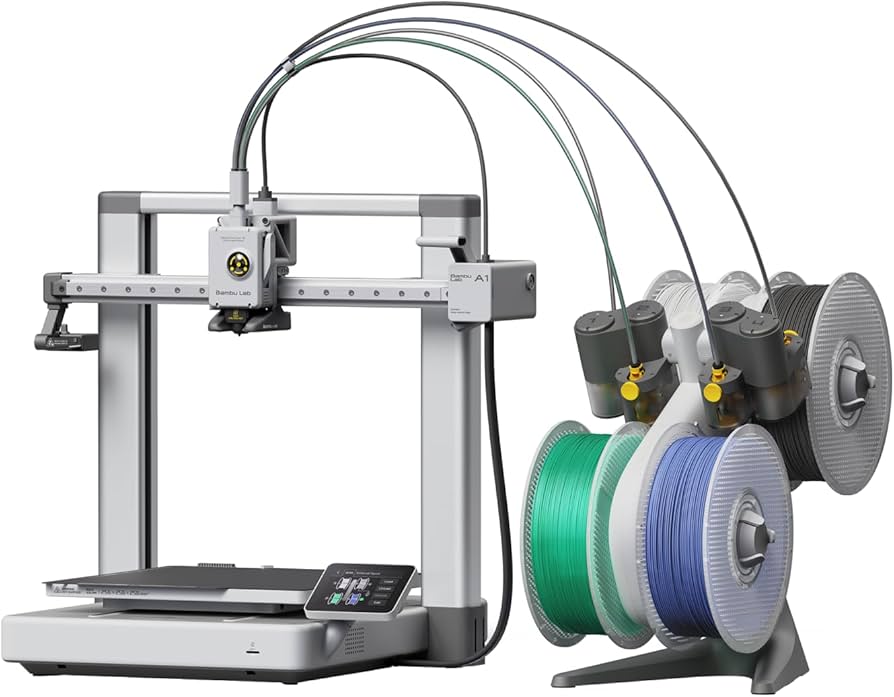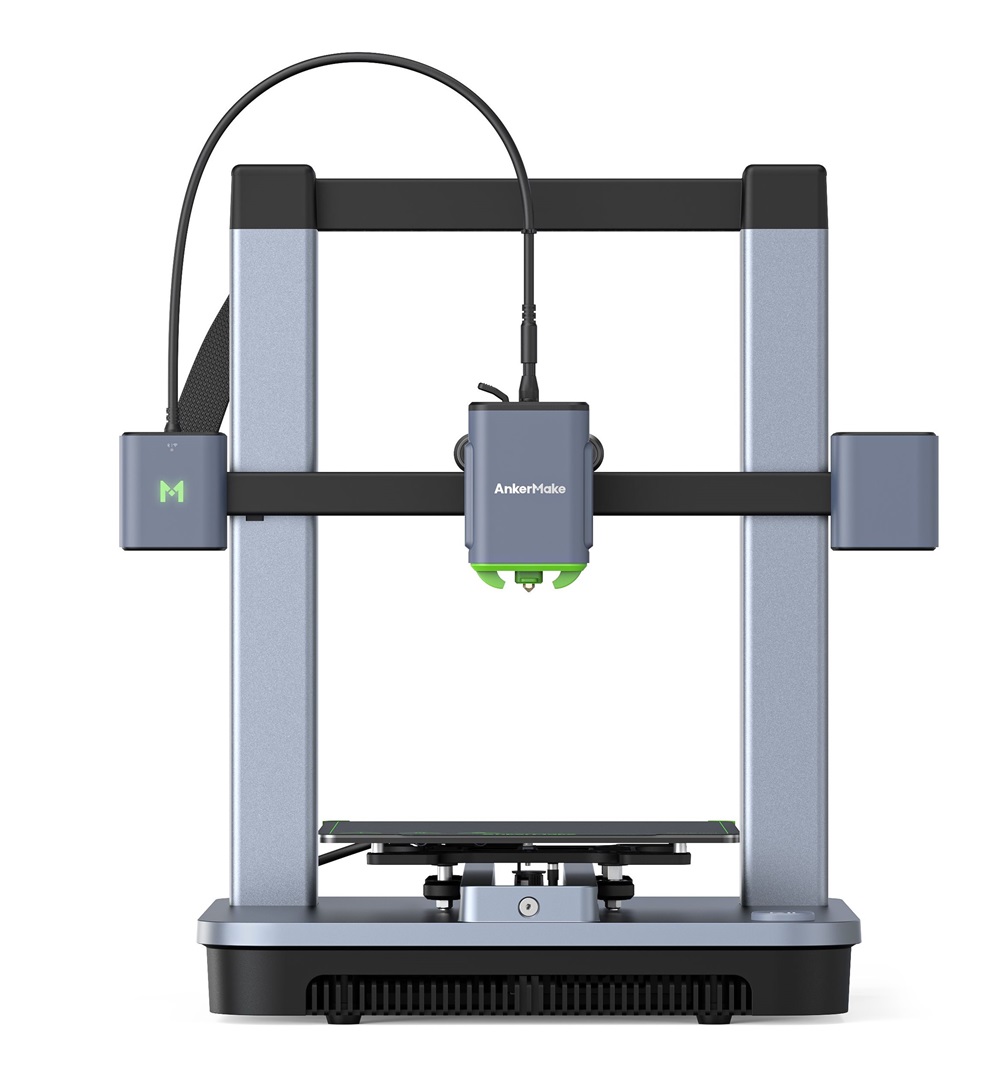Compare A1 vs M5C
Comparison between the best 3D printers
Choose the best 3D printer at the best price. The cheapest 3D printers are here.
Buy a 3D printer here with 3D Fila.
 |
 |
|
| Model | A1[BUY A1] |
M5C[BUY M5C] |
| Printing Material | Filament | Filament |
| Buy Filament for Bambu Lab A1 | Buy Filament forAnkerMake M5C | |
| Estimated price | $700,00 | $399,00 |
| Manufacturer | Bambu Lab | AnkerMake |
| Release Year | 2023 | 2023 |
| Print Volume [mm] | 256x256x256 | 220x220x250 |
| Printer Size [mm] | 385x410x430 | 466x374x480 |
| Weight [kg] | 8,3 | 9,6 |
| Power Loss Recovery | YES | YES |
| Enclosed printer | NO | NO |
| Bed Leveling | Automatic | Automatic |
| Filament End Sensor | YES | YES |
| Bed type | Heated | Heated |
| Power supply system | Direct Drive | Direct Drive |
| Standard nozzle | 0,4 | 0,4 |
| Maximum Nozzle Temperature [°C] | 300 | 300 |
| Maximum Bed Temperature [°C] | 100 | 100 |
| Maximum printing speed [mm/s] | 500 | 500 |
| Filament holder | YES | YES |
| Camera for supervision | YES | YES |
| Recommended filaments | PLA, PETG, TPU, PVA | PLA, PETG, TPU, ABS, PA, PLA-CF, PETG-CF, PA-CF |
| Recommended slicers | SuperSlicer, PrusaSlicer, Cura, OrcaSlicer | AnkerMake Studio (macOS, Windows), Simplify3D, Ultimaker Cura, PrusaSlicer |
| Maximum Resolution [mm] | 0,1 | 0,1 |
| Processor | ||
| Display | Touchscreen 3,5 | |
| Power Supply | 350 W | 350 W |
| Connectivity | Wi-Fi, Bambu-Bus, Cartão Micro SD | Wi-Fi, USB-C, Bluetooth |
| Operating systems | Windows, Linux, Macbook | Windows, Linux e Macbook |
| Date of registration in the system | 2024-07-17 | 2024-09-11 |
| Release date | 2023 | 2023 |
| Extra features | The BambuLab A1 printer features fully automatic calibration, multi-color printing with the AMS system, active flow rate compensation, quick nozzle change with a clip, active motor noise cancellation, a build volume of 256x256x256 mm³, a maximum extruder temperature of 300°C, and a heated bed of up to 100°C. In addition, it has high precision, a machine health management system and an intuitive 3.5-inch touchscreen interface. | The AnkerMake M5 printer stands out for its impressive print speed, reaching up to 500mm/s. It features AI print monitoring, an integrated camera for creating timelapses, auto-leveling bed with pressure sensor, direct extruder, flexible PEI-coated build plate, and Wi-Fi and USB-C connectivity. Assembly is quick and easy, and the printer is designed to deliver high print quality and ease of use. |
| Support for multiple colors and materials (AMS and CFS) | YES | NO |
Notes * |
||
| Cost-benefit | 7 / 10 | 7 / 10 |
| Hardware | 4.2 / 10 | 2.8 / 10 |
| Tela | . | . |
| Print volume | 4 / 10 | 3 / 10 |
| Performance | 4 / 10 | 4 / 10 |
| [BUY A1] | [BUY M5C] |
Conclusion |
| In conclusion, both the Bambu Lab A1 and the AnkerMake M5C are commendable options in the 3D printing space, each presenting distinct advantages tailored to different user preferences and needs. The Bambu Lab A1, while positioned at a higher price point, offers a more expansive print volume and additional features such as support for multi-color printing and advanced calibration capabilities. Its specifications suggest superior print precision and functionality, making it a solid choice for users focused on intricate designs and a variety of filament options. On the other hand, the AnkerMake M5C provides excellent value for its price, emphasizing speed and ease of use with features like quick assembly and an integrated camera for real-time monitoring and timelapses. While it has a slightly smaller print volume and lacks multi-color printing support, its robust capabilities still cater effectively to both newcomers and experienced users looking for efficient and straightforward printing solutions. Ultimately, the choice between these two printers will hinge on specific requirements: if versatility and advanced features take precedence, the Bambu Lab A1 may be the preferred option; conversely, if budget and practicality are major considerations, the AnkerMake M5C offers a strong balance of performance and user-friendliness at a more accessible price. |

